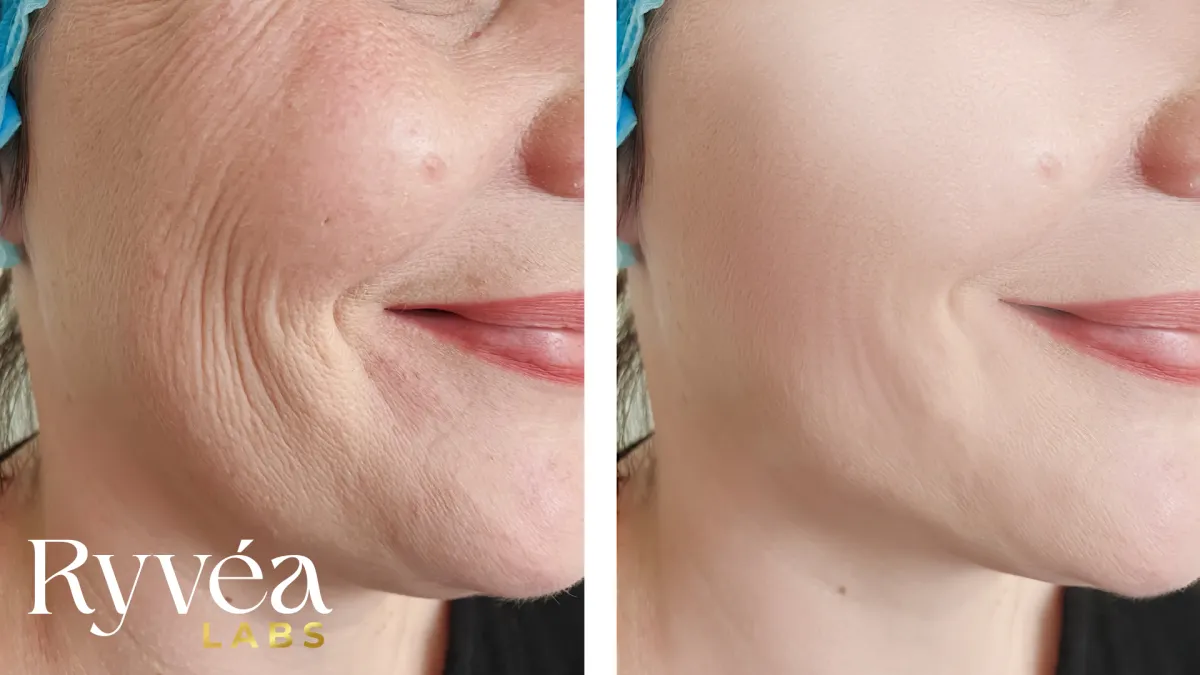
Anti-Aging Peptides: Fad or Science-Backed Innovation?
Anti-Aging Peptides: Fad or Science-Backed Innovation?
“Peptides may signal skin cells to repair, regenerate, and produce more collagen—making them a valuable ingredient in the science of healthy aging.”
Disclaimer: This is a publicly sourced quote, used for educational context only. (Dr. Shereene Idriss, Dermatologist)

Introduction
The skincare world is filled with bold claims and buzzwords. But one term that keeps rising to the top? Anti-aging peptides.
From serums to supplements, these amino acid chains are being marketed as a way to slow visible signs of aging—but what’s real, and what’s just hype?
In this post, we’ll explain what anti-aging peptides are, how they may work, and what science says about their potential to support skin, cellular health, and longevity.
What Are Anti-Aging Peptides?
Peptides are short chains of amino acids, and in the anti-aging space, they’re studied for their ability to signal the body to repair, rebuild, and rejuvenate.
Some act topically—improving skin texture and elasticity. Others are studied systemically—potentially supporting cellular regeneration and inflammatory balance.
There are two main categories:
Overview of peptide aging science:
NIH – Peptides and Skin Aging
How Peptides May Support Healthy Aging
Peptides aren’t magic—but they may help the body do what it’s already designed to do, more efficiently.
Here’s how:
Stimulating collagen and elastin: This helps reduce wrinkles and firm skin.
Regulating inflammation: Chronic inflammation accelerates aging; some peptides may calm it.
Supporting mitochondrial function: Healthy energy production at the cellular level is critical to aging well.
Repairing damaged cells: Peptides like BPC-157 and Epitalon are being researched for cellular repair signaling.
Balancing hormones: Some peptides may modulate hormones involved in aging, like growth hormone or melatonin.
Overview of skin and systemic aging processes:
Harvard Health – What Slows Aging?
Notable Anti-Aging Peptides Being Researched
Here are several peptides gaining attention in the anti-aging space:
1. GHK-Cu (Copper Peptide)
Known for its potential to improve skin elasticity, wound healing, and hair regeneration. Found in many high-end serums.
2. Epitalon
A synthetic peptide derived from the pineal gland. Studied for its effect on telomere length, melatonin regulation, and longevity.
3. Thymosin Alpha-1 and Beta-4
Being researched for immune modulation and tissue repair, which are important for healthy aging.
4. BPC-157
May support gut health, tissue regeneration, and cellular repair, especially after physical stress or injury.
More on BPC-157 and cellular aging:
PubMed – BPC-157 in Tissue Healing
Is It All Backed by Science?
Some anti-aging peptides, like GHK-Cu, have been extensively studied for skin regeneration and wound healing. Others, like Epitalon, show promise in early-stage research but lack large-scale human trials.
Here’s what we know:
Topical peptides have solid support for improving skin hydration, elasticity, and appearance.
Systemic peptides show potential but are often sold as “research-only” and not FDA-approved.
Claims about “reversing aging” are not currently supported by conclusive evidence.
Review of clinical studies on peptide aging:
Examine.com – GHK-Cu Peptide Profile
Are Anti-Aging Peptides Safe?
When used topically, most cosmetic peptides are well tolerated and considered safe. For systemic peptides:
Always consult a healthcare provider
Be cautious with research-only compounds
Avoid unverified or untested peptide blends from online vendors
Look for transparency, purity testing, and clear usage guidelines
Unregulated use can lead to hormonal imbalances, skin irritation, or unknown systemic effects.
How to Choose Anti-Aging Peptides
When exploring anti-aging peptides:
Start with well-researched topical formulas (like GHK-Cu serums)
If exploring systemic peptides, look for medical supervision and lab-grade sourcing
Don’t rely on peptides alone—combine them with proper skincare, sleep, nutrition, and sun protection
Download Our Free Peptides 101 Ebook
Conclusion – Fad or Innovation?
Anti-aging peptides aren’t magic bullets—but they do show promising signs of supporting skin health, cellular recovery, and healthy aging processes.
If used thoughtfully and responsibly, they may become a key part of modern longevity strategies.
Final Thoughts
At Ryvéa Labs, we don’t chase trends—we explain them. Anti-aging peptides are an exciting area of science, but they need to be approached with caution, clarity, and curiosity. With the right education and support, they may be a valuable tool in your long-term health journey.
